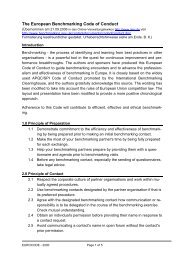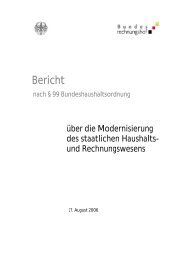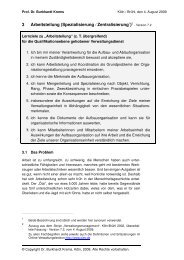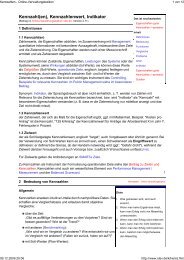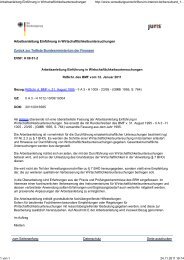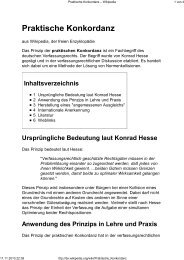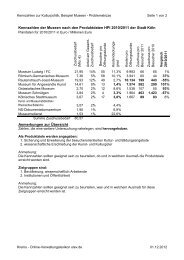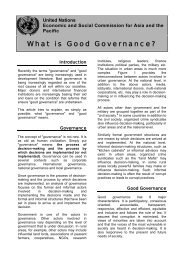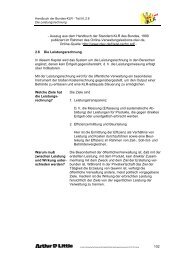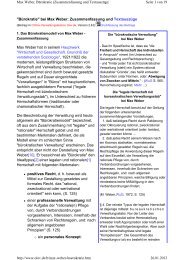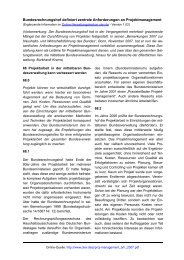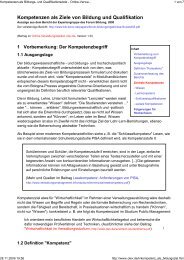Strategy Survival Guide
Strategy Survival Guide
Strategy Survival Guide
Create successful ePaper yourself
Turn your PDF publications into a flip-book with our unique Google optimized e-Paper software.
• 'ghost shoppers’ e.g. researchers or actors directly experiencing services - used by the Consumer<br />
Association<br />
• role playing<br />
• event diaries e.g. National Travel Survey based upon travel diaries.<br />
It is important to be very clear about the purposes of the exercise – what evidence the focus groups are<br />
looking to collect, how the event can be tailored to the participants while maintaining analytical rigour and<br />
how to prime the groups. Consideration should also be given to which social groups need to be consulted,<br />
how broad the consultation should be and how the groups will be managed and facilitated.<br />
A useful first step is to design some scenarios for the groups to consider – this is a useful exercise to<br />
organise the team’s own thoughts, and will help to design the consultation, and provide a clear view of what<br />
the groups should focus on. Scenarios also offer the opportunity to be creative – they can set out existing<br />
practices or problems, but they can also be used to pose some hypothetical questions.<br />
It is also useful to consider using external expertise to organise, host and facilitate the groups – MORI and<br />
others have good expertise in this area. If an external consultant is involved, consideration should be given<br />
to how the results should be presented back – either as a factual report, a presentation, a report with<br />
suggested solutions to problems posed etc. It can be better to simply get a factual read-out as this leaves<br />
more scope for the team to interpret the findings for themselves and design creative solutions.<br />
Strengths<br />
• Interviews give an insight into problem from a range of perspectives.<br />
• Stakeholders can act as sounding boards and provide a reality check.<br />
• Can generate new ideas and hypotheses, and can challenge prior assumptions of policy-makers<br />
about public attitudes.<br />
• Provides insights for policy making by indicating some of the drawbacks of existing arrangements or<br />
potential new policies.<br />
• Gives a more considered view than conventional surveys, in a more natural 'conversation’ with other<br />
members of the public.<br />
• Understanding motivation.<br />
• Relatively cheap.<br />
Weaknesses<br />
• Time-consuming.<br />
• Stakeholders may try to apply pressure through lobbying.<br />
• Views from selected frontline organisations will be based on individuals' experiences and may not<br />
always be representative. Therefore conclusions need to be assessed in the light of other evidence.<br />
• Be aware of limitations: focus group participants won’t have a policy background (obviously) and<br />
won’t be able to discuss detailed policy issues. Focus groups may not throw up many new ideas or<br />
produce very rational discussion (though useful to be aware of the apparent contradictions in<br />
consumers’ views) and results may not be of too much help to the project.<br />
• As the focus groups tend to involve small numbers they may not be representative of the wider<br />
population, or even of the narrower population from which they are drawn. A single focus group per<br />
consumer segment/policy issue means that any differences between groups may not be robust and<br />
caution should be taken over wider inferences.<br />
References<br />
The Good Research <strong>Guide</strong>, Martyn Denscombe<br />
<strong>Strategy</strong> <strong>Survival</strong> <strong>Guide</strong> – <strong>Strategy</strong> Skills<br />
Page 127



